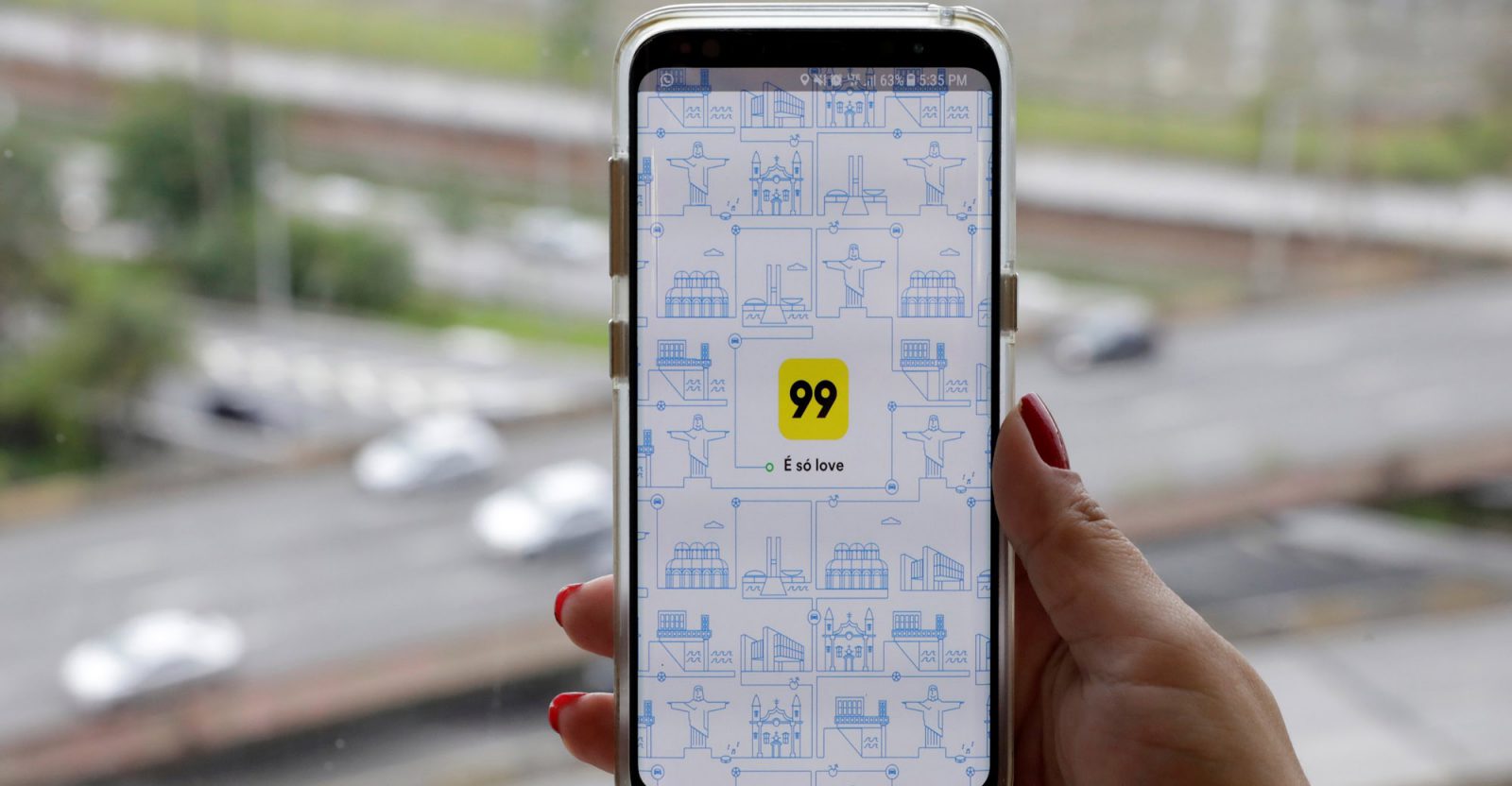(Reuters) Two years after achieving the feat of the first unicorn startup and months after reaching the milestone of completing 1 billion trips on its platform, Brazilian ride-hailing service 99 is charting its next big ride.
Controlled by China’s Didi Chuxing Technology, 99 has partnered with WhatsApp to accept orders on the chat platform in a move that would allow users to summon cars without using another app, Reuters reported today.
The partnership is the first of its kind in the world for Didi, China’s biggest ride-hailing company that could give 99 an advantage in competing with US-based Uber, the market leader in Brazil, the company said.
The Chinese transportation giant DiDi invested in 99 first in 2017 to expand the Latin American market, although DiDi brought its own-branded ride-hailing, taxi-hailing and food delivery services to other regional markets including Mexico, Chile, Colombia and Costa Rica after that acquisition.
READ MORE: Didi, BAIC ink self-driving car pact
In 2018 Didi bought more stakes of 99 that turned the ride-sharing platform, a unicorn – a start-up company valued at more than a billion dollars, typically in the software or technology sector.
In January, 99 also achieved the feat of booking I billion rides since its inception in 2012.
Huge market
Brazil is the largest ride-hailing market in Latin America, and as one of the largest mobility providers in the country, 99 offers five types of mobility services on its platform: 99Pop, 99Taxi, 99Top, 99SCompartilha (carpool) and 99Comfort, as well as its own-branded food delivery service, 99Food..
Today, 99 works with over 600,000 partner drivers, including about 18% of women drivers, to serve 18 million passengers in more than 1,600 cities. Top markets are São Paulo, Rio de Janeiro, Belo Horizonte, Porto Alegre and Curitiba.
WhatsApp has 120 million active users in Brazil, which has a population of 210 million, making it the app’s second-largest market behind India. 99 has about 20 million customers registered with its app and more than 750 thousand active drivers across Brazil.
Facilitating easy access
The partnership is primarily aimed at low income Brazilians whose smartphones have less capacity to download apps, and people who live in regions whose mobile phone signals are weaker, said Livia Pozzi, operations manager at 99. “It will [also] allow access to the service for a larger universe of people who will no longer need to download our app to order their rides.”
Like in other developing countries, access to mobile phones has become ubiquitous in Brazil, with estimated 92.6% of Brazilian households connecting to the internet through these gadgets.
High mobile phone penetration has also driven innovative services in urban transportation such as real time geo-positioning, online mapping, routing apps and multi-mode scheduling. More recently as e-hailing has started being widely used too with passengers and drivers who own a private vehicle connecting with each other using mobile technology.
According to Pozzi, WhatsApp is already used for paying 70% of the rides ordered via 99 rides.
The fare will be the same as for rides ordered over the 99 app. At a later date, WhatsApp will allow users to use its new instant payments system to pay for rides on 99, said Gabriela Comazzetto, Facebook business director in Brazil.
The country’s Central Bank is allowing payments through the WhatsApp system on a trial basis.
- Reuters
























